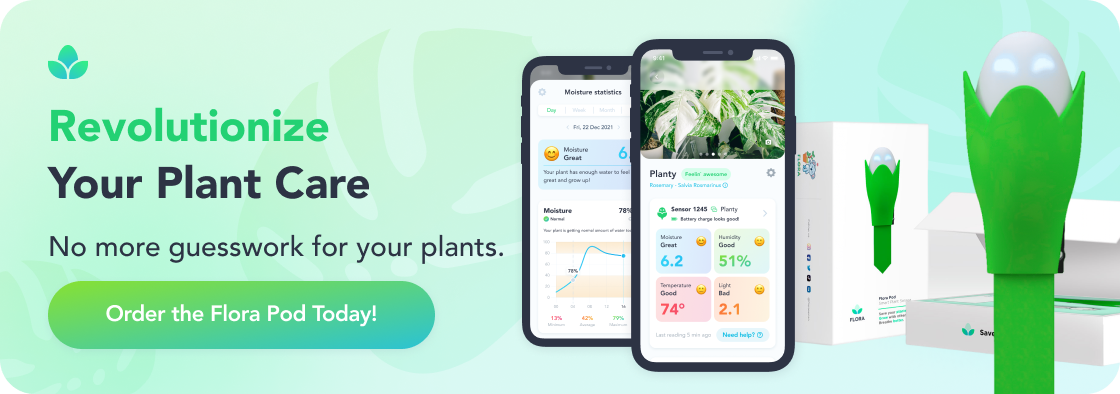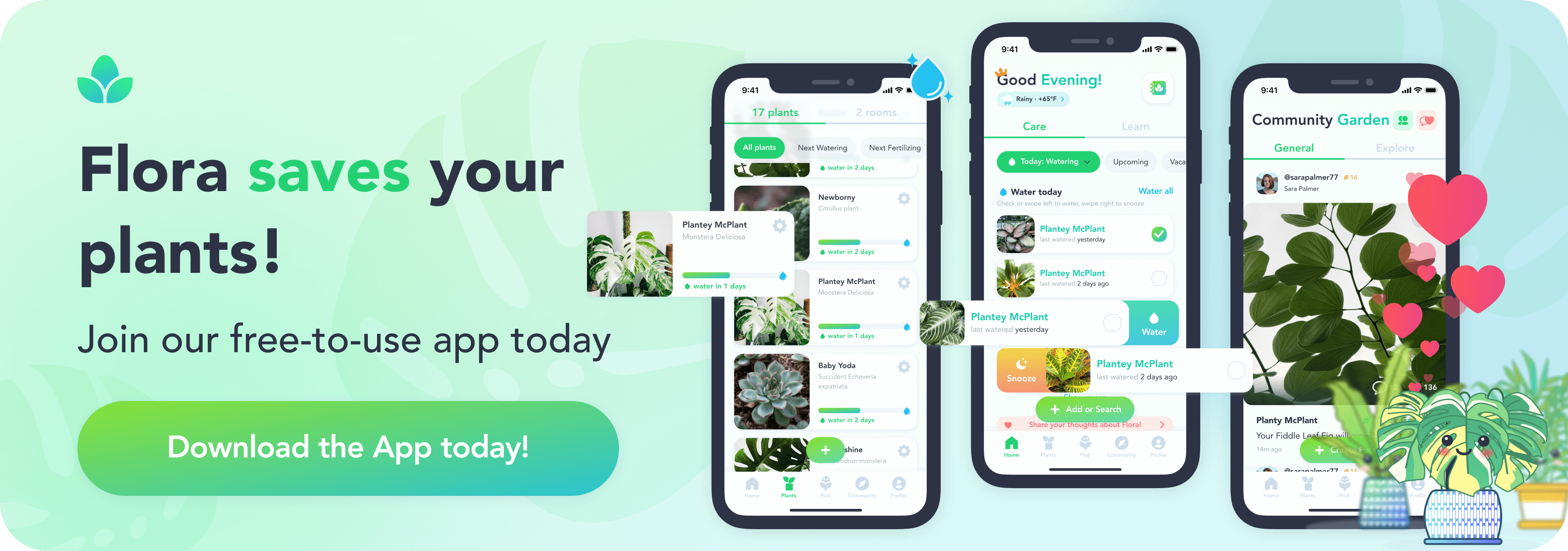10 Amazing Benefits of House Plants for Your Health and Home

House plants bring more than natural beauty to your indoor spaces—they enhance your health and create a welcoming atmosphere. From improving air quality to lifting your mood, these green companions offer benefits that transform your living space into a sanctuary. Whether you’re seeking to reduce stress, enhance productivity, or simply add charm to your décor, house plants are the perfect addition to every home. Their positive impact on physical and emotional well-being makes them an essential part of a healthier, happier lifestyle.
1. Stress Reduction Through Indoor Plants

The calming presence of indoor plants has been shown to reduce stress and anxiety, helping to create a tranquil environment. When you surround yourself with greenery, it can trigger a relaxation response, slowing your heart rate and lowering cortisol levels, which are markers of stress. This effect is particularly beneficial in today’s busy lifestyles where finding moments of calm can be challenging.
How Plants Help Reduce Stress
House plants naturally purify the air by absorbing toxins, which contributes to an overall feeling of well-being. The visual connection to nature, often called biophilia, helps create a sense of grounding and peace. Even simple activities, such as watering or pruning, can become meditative, giving you a chance to pause and focus on the present.
Best Plants for Stress Relief
Lavender: Known for its calming aroma, lavender helps reduce anxiety and promote restful sleep.
Snake Plant: Easy to care for and excellent for purifying the air, this plant is perfect for creating a serene atmosphere.
Peace Lily: A symbol of tranquility, it’s ideal for spaces where relaxation is a priority.
Embracing house plants not only enhances your home’s aesthetics but also offers a natural and effective way to manage stress. Their presence transforms your living spaces into calming retreats, promoting both mental and physical health.
2. Enhanced Focus and Concentration

House plants can significantly improve your ability to focus and concentrate, making them perfect companions for workspaces and study areas. Studies have shown that exposure to greenery can increase attention span and cognitive performance, helping you tackle tasks more effectively.
The Science Behind Plants and Concentration
Plants have a natural ability to reduce mental fatigue by promoting a sense of calm and clarity. They enhance oxygen levels in the air, which can improve brain function and reduce symptoms of lethargy. Additionally, their subtle presence offers a break for the eyes, giving your mind a brief pause from screen strain or intensive tasks.
Top Choices for Enhanced Focus
Golden Pothos: Known for its air-purifying properties, this plant is low-maintenance and thrives in most environments.
Spider Plant: Easy to grow and adaptable, the spider plant helps to create a clean and breathable workspace.
Areca Palm: With its gentle, flowing fronds, this plant adds an elegant touch while boosting air quality.
Practical Benefits
Whether you're working from home or managing a bustling household, having plants around can help you maintain focus and tackle your to-do list with renewed energy. Their presence isn’t just decorative—it’s functional, fostering productivity and mental sharpness in any setting.
3. Accelerated Recovery from Illness

House plants can play a vital role in speeding up recovery from illnesses by creating an environment that supports physical and emotional healing. The soothing presence of greenery helps reduce discomfort and stress, while also improving air quality, which is essential for overall health.
How Plants Aid Recovery
Studies have demonstrated that patients in environments enriched with plants or views of greenery recover faster from surgeries and illnesses. This is largely due to the reduction in stress and the enhancement of indoor air quality, which promotes better breathing and reduces allergens. Plants also contribute to maintaining optimal humidity levels, preventing dryness and irritation in the airways.
Recommended Plants for Recovery
Aloe Vera: Known for its medicinal properties, aloe vera not only purifies the air but can also be used to soothe minor burns or skin irritations.
Boston Fern: This plant is excellent for increasing humidity, making it a great choice for environments where respiratory comfort is a priority.
English Ivy: Recognized for its ability to remove toxins like mold spores from the air, it is particularly helpful for individuals recovering from respiratory issues.
Practical Implications
Incorporating house plants into your living space can make your recovery periods more comfortable and less stressful. Their ability to enhance both physical and emotional well-being ensures that your journey back to health is supported in a natural and nurturing way.
4. Improved Air Quality at Home

One of the most celebrated benefits of house plants is their ability to purify the air in your home. By naturally filtering out toxins and improving oxygen levels, indoor plants create a healthier living environment that supports your respiratory health and overall well-being.
How Plants Improve Air Quality
Plants act as natural air filters, absorbing harmful pollutants like carbon monoxide, benzene, and formaldehyde through their leaves and roots. During photosynthesis, they release oxygen and reduce carbon dioxide levels, making the air in your home fresher and more breathable. Some plants also increase humidity, preventing dry skin and respiratory discomfort.
Best Air-Purifying Plants
Peace Lily: Known for its ability to remove toxins such as benzene and formaldehyde, it thrives in low light and adds elegance to any room.
Areca Palm: This plant excels at increasing humidity levels, making it perfect for dry climates or winter months.
Rubber Plant: It is highly effective at removing airborne toxins and is low-maintenance, making it a practical choice for any household.
Long-Term Benefits
By improving air quality, house plants help reduce allergies, respiratory issues, and fatigue. Their role in detoxifying your home not only promotes better health but also ensures a more pleasant and rejuvenating indoor atmosphere.
5. Boosted Mood and Happiness Levels

House plants have a remarkable ability to enhance your mood and bring a sense of joy to your daily life. Their vibrant colors, lush greenery, and the act of nurturing them create an uplifting environment that promotes emotional well-being.
The Psychological Impact of Plants
Interacting with plants triggers the release of dopamine, a chemical linked to pleasure and satisfaction. Caring for plants can also foster a sense of purpose and accomplishment, which is particularly beneficial during challenging times. The connection to nature they provide has been shown to reduce feelings of loneliness and increase overall happiness.
Mood-Enhancing Plants to Consider
Jasmine: Its sweet aroma can improve sleep quality and reduce anxiety, making it a great addition to bedrooms.
Sunflowers (Indoor Varieties): Bright and cheerful, these flowers can instantly lift your spirits with their sunny disposition.
Calathea: Known for its striking patterns and vibrant foliage, it brings a lively energy to any room.
Practical Benefits
Beyond their beauty, house plants cultivate a nurturing atmosphere that fosters positive emotions. Whether you’re unwinding after a long day or seeking comfort during tough moments, their presence acts as a natural mood booster, making every day a little brighter.
6. Increased Productivity in Workspaces

Integrating house plants into your workspace can lead to a noticeable boost in productivity and creativity. Whether you're working from home or in an office, having greenery nearby can help you stay focused, organized, and inspired.
The Connection Between Plants and Productivity
Research has shown that plants in work environments enhance cognitive function and memory retention. They also help reduce noise levels by absorbing sound, creating a more tranquil workspace. Their presence lowers stress, enabling you to tackle tasks with clarity and efficiency.
Top Plants for Workspaces
ZZ Plant: A hardy option for offices, this plant thrives in low-light conditions and requires minimal care, allowing you to focus on your tasks.
Snake Plant: Renowned for its air-purifying properties, it enhances your workspace while boosting air quality.
Lucky Bamboo: Known for its elegant appearance and ability to bring positive energy, it’s a popular choice for desk décor.
Practical Impacts
By improving air quality, reducing stress, and providing a refreshing visual break, house plants create an optimal environment for productivity. Their calming presence helps you stay engaged and focused, making them indispensable companions in any workspace.
7. Therapeutic Effects of Gardening

Gardening with house plants offers therapeutic benefits that extend beyond physical health. The act of tending to plants can reduce anxiety, promote mindfulness, and improve overall mental well-being, making it a fulfilling activity for people of all ages.
The Therapeutic Value of Gardening
Caring for plants provides a sense of purpose and accomplishment, which can be especially beneficial during stressful times. Activities like pruning, watering, and repotting encourage mindfulness, as they require you to focus on the present moment. This connection to nature has been shown to lower stress hormones and boost mood.
Accessible Gardening with House Plants
House plants make gardening accessible to everyone, regardless of space constraints. Whether you live in a small apartment or a large home, maintaining an indoor garden allows you to experience the calming effects of horticulture. From arranging succulents to nurturing flowering plants, there’s something deeply satisfying about watching your plants thrive under your care.
Practical Benefits
Gardening with house plants not only improves mental health but also creates a deeper appreciation for nature. It’s a therapeutic hobby that enhances your home’s atmosphere while fostering a sense of joy and accomplishment.
8. Environmental Impact of House Plants

House plants play a vital role in improving the micro-environment of your home while contributing to a more sustainable lifestyle. Their ability to support ecological balance on a small scale can positively impact the world around us.
Reducing Carbon Footprints
Plants absorb carbon dioxide and release oxygen during photosynthesis, helping to lower the carbon footprint of your indoor space. They also filter out airborne toxins, reducing the need for air purifiers and contributing to energy efficiency. By creating a healthier indoor environment naturally, house plants support eco-friendly living practices.
Supporting Biodiversity
Maintaining a variety of house plants helps support biodiversity, even within indoor spaces. Certain plants attract beneficial insects, such as pollinators, which contribute to ecological health. For example, flowering plants like peace lilies or lavender can draw bees or butterflies indoors, fostering a connection to the natural world.
Practical Considerations for Sustainability
Opting for sustainable practices like repotting in biodegradable pots, using organic fertilizers, and recycling water for irrigation further amplifies the environmental benefits of house plants. They encourage mindful consumption and inspire eco-friendly habits that extend beyond plant care.
House plants offer a tangible way to contribute to environmental sustainability while enhancing your living space. Their positive ecological impact, combined with their beauty and functionality, makes them a valuable addition to any home.
9. Aesthetic Appeal and Home Décor

House plants are unparalleled in their ability to elevate the aesthetic appeal of any living space. With their diverse shapes, sizes, and colors, they effortlessly blend into various décor styles while adding a sense of life and vibrancy.
Enhancing Interior Design
Plants act as versatile design elements, complementing everything from minimalist to bohemian aesthetics. Large plants like fiddle-leaf figs can serve as statement pieces, while smaller options like succulents and ferns can fill empty corners or adorn shelves. Their natural textures and vibrant hues create a soothing contrast to modern materials like metal, glass, or concrete.
Customizable Plant Displays
House plants can be styled in creative ways to suit your preferences. Consider grouping plants of varying heights for a layered look, or use hanging plants like pothos to add dimension to vertical spaces. Pair decorative pots with your plants to add a personalized touch that enhances your home’s character.
Practical Advantages
Beyond their visual appeal, house plants improve the ambiance of your home by softening harsh lines and absorbing background noise. Their presence creates a warm, inviting environment that is perfect for relaxation and entertaining guests.
Whether you prefer bold, eye-catching plants or subtle greenery, house plants allow you to transform your home into a stylish and welcoming haven.
10. Considerations for Plant Care and Safety

While house plants offer numerous benefits, it’s essential to consider their care requirements and safety to ensure a harmonious and healthy indoor environment. Thoughtful planning and proper maintenance can help you avoid potential challenges while enjoying all the rewards they bring.
Caring for Your House Plants
Each plant has unique needs, including specific light, water, and humidity requirements. Understanding these factors is key to ensuring their long-term health. For instance, tropical plants like Monstera thrive in indirect light and high humidity, while succulents require ample sunlight and well-draining soil. Regular practices like dusting leaves, monitoring for pests, and repotting when needed are also crucial for plant health.
Ensuring Safety in Your Home
If you have pets or small children, it’s important to choose non-toxic plants or place potentially harmful ones out of reach. Some common house plants, such as peace lilies and pothos, can be toxic if ingested. Opt for pet-safe options like spider plants or Calathea varieties to create a worry-free environment. Additionally, ensure that pots are stable and won’t tip over easily, especially in high-traffic areas.
Practical Considerations
Being mindful of your plant selection and care routines allows you to enjoy all the benefits house plants offer without compromising safety. A little research and planning go a long way in creating a thriving indoor garden that complements your lifestyle.
By prioritizing care and safety, you set the foundation for a flourishing relationship with your house plants, enriching your home and life in countless ways.
FAQs About 10 Amazing Benefits of House Plants For Your Health And Home
What are the benefits of house plants in small apartments?
House plants improve air quality, add greenery to compact spaces, and boost mood even in small living areas. Low-light plants like pothos and ZZ plants are ideal for apartments.
Are there specific house plants for improving mental health?
Yes, plants like lavender, peace lilies, and snake plants are known for their calming properties and ability to reduce stress, enhancing overall emotional well-being.
Can house plants help with sleep quality?
House plants such as jasmine, aloe vera, and lavender release oxygen and soothing aromas at night, promoting relaxation and better sleep.
How do house plants support eco-friendly living?
House plants reduce indoor toxins, lower reliance on air purifiers, and support sustainable practices like composting and water recycling when cared for thoughtfully.
What are the best house plants for beginners?
For beginners, low-maintenance options like spider plants, snake plants, and pothos are great choices due to their resilience and minimal care requirements.
Incorporating house plants into your home isn’t just about adding greenery—it’s a step toward a healthier, more vibrant life. These living companions purify the air, promote focus, and foster a sense of calm and joy. By considering their care and safety, you can maximize their benefits while ensuring they thrive in your environment. With so much to offer, house plants truly enrich your home and health in meaningful ways.
Fern's Leafy Learnings
House plants enhance air quality by removing toxins and increasing oxygen levels, making indoor spaces healthier.
They promote mental well-being by reducing stress, boosting mood, and improving focus and productivity.
Incorporating plants into your home décor adds natural beauty, complements various design styles, and creates a welcoming environment.
Caring for house plants provides therapeutic benefits and fosters a sense of accomplishment and connection with nature.
Thoughtful plant care, including selecting pet-safe options, ensures both the plants and your household thrive harmoniously.
Deepen Your Roots with Flora
At Flora, we not only bring you a vibrant selection of locally sourced, rare, and delightful plants, but we also serve as your continuous guide in your plant parenting voyage, ensuring every leaf in your sanctuary thrives. With our Flora Pod™ technology and a nurturing community of over 250,000 plant lovers, we cultivate a space where every plant parent - novice or expert - can blossom.
We propagate with a commitment to sustainability, connection, and ceaseless growth, fostering a community where each member, and their plants, are cherished and nurtured.
Crave a lush, thriving green space? Adopt a plant from Flora today!
Flora Pod™ is featured on Shark Tank!

5 Signs Your Houseplant Needs Repotting Now
Mar 02, 2026
6 Anthurium Benefits You Didn't Know About
Mar 02, 2026

How to Prune Your Houseplants Before Spring Growth Season
Mar 02, 2026

10 Best Houseplants for Spring Repotting Success
Mar 02, 2026

Can ZZ Plants Survive in Low Light Conditions?
Mar 02, 2026

5 Critical Pre-Spring Pruning Tips for Houseplants
Mar 02, 2026

Can Succulents Survive Winter Outdoors in Your Climate Zone?
Mar 02, 2026

Which Houseplants Are Toxic to Cats and Should You Avoid Them?
Mar 02, 2026




